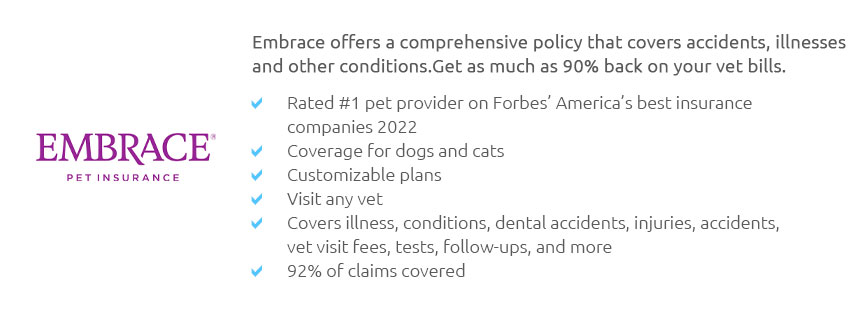 |
 |
 |
 |
 |
|
 |
|
 |
|
 |
|
 |
|
 |
|
 |
|
 |
 |
Understanding Pet Insurance Costs for DogsAs a responsible pet owner, one of the most pressing considerations is safeguarding your beloved canine companion's health, and this often leads to the question of whether pet insurance is a worthwhile investment. The cost of pet insurance for dogs can vary significantly, influenced by a myriad of factors, including the dog's breed, age, and overall health. While some dog owners might view pet insurance as an unnecessary expense, others see it as a crucial safety net that can alleviate the financial burden of unexpected veterinary costs. In this article, we delve into the intricacies of pet insurance costs for dogs, offering a balanced analysis of the pros and cons associated with this financial decision. To begin with, let's consider the factors influencing the cost of pet insurance. The breed of your dog plays a significant role in determining insurance premiums. Larger breeds, such as Golden Retrievers or German Shepherds, are often more expensive to insure due to their predisposition to certain health conditions like hip dysplasia. Conversely, smaller breeds might cost less, but this is not a hard and fast rule, as some small breeds are prone to genetic conditions. Age is another critical factor; puppies and younger dogs are generally cheaper to insure than older dogs, which are more likely to develop health issues as they age. Additionally, the level of coverage you choose, whether it's accident-only, time-limited, or lifetime coverage, can substantially affect the premium. While lifetime coverage is the most comprehensive, it is also the most expensive, yet it offers peace of mind knowing that your dog's medical needs will be covered throughout their life. Now, let's weigh the benefits and drawbacks of investing in pet insurance for dogs. On the one hand, having insurance means that you can provide your dog with the best possible care without worrying about the exorbitant costs of surgeries or treatments for chronic conditions. This financial buffer can be especially comforting in emergencies when quick decision-making is crucial. Moreover, many insurance plans offer additional benefits such as coverage for lost pets, liability insurance, and even behavioral therapy, which can be an attractive proposition for comprehensive pet care. On the other hand, some argue that the money spent on insurance premiums could be saved or invested in a dedicated pet fund to cover veterinary expenses directly. This approach might work for those who prefer to have direct control over their finances, but it requires discipline and foresight to ensure that adequate funds are available when needed. Furthermore, some insurance policies come with limitations and exclusions, such as not covering pre-existing conditions or requiring a waiting period before certain benefits kick in, which can be a source of frustration for pet owners who find themselves unprepared for these stipulations. In conclusion, the decision to invest in pet insurance for your dog is a personal one, hinging on your financial situation, your dog's specific needs, and your risk tolerance. It's essential to carefully evaluate the terms and conditions of various insurance providers, considering factors such as coverage limits, deductibles, and reimbursement levels, to find a policy that aligns with your expectations and provides the best value for your investment. Frequently Asked QuestionsHow much does pet insurance for a dog typically cost? The cost of pet insurance for a dog can range from $30 to $100 per month, depending on factors such as breed, age, and the level of coverage selected. What does pet insurance usually cover? Pet insurance typically covers unexpected illnesses and accidents, and some plans also include routine care, vaccinations, and preventive measures, depending on the policy. Are there any breeds that are more expensive to insure? Yes, breeds prone to genetic health issues or larger breeds that are more likely to suffer from conditions like hip dysplasia tend to be more expensive to insure. Can I get pet insurance for an older dog? Yes, although it might be more expensive due to the increased risk of health problems, many insurers offer policies for older dogs, sometimes with certain limitations. Is it worth getting pet insurance for a healthy dog? While it may seem unnecessary for a healthy dog, pet insurance can provide peace of mind and financial security in case of unexpected illnesses or accidents. https://www.nerdwallet.com/article/insurance/cost-of-pet-insurance
The average pet insurance cost is about $56 per month for dogs and $32 per month for cats for the most common type of policy. https://www.nerdwallet.com/article/insurance/is-pet-insurance-worth-it
The average pet insurance cost is about $56 per month for dogs and $32 per month for cats for the most common type of policy. 2. By ... https://www.petinsurance.com/dog-insurance/
Plans start at: $13/mo. Protect your dog's future. Having ...
|